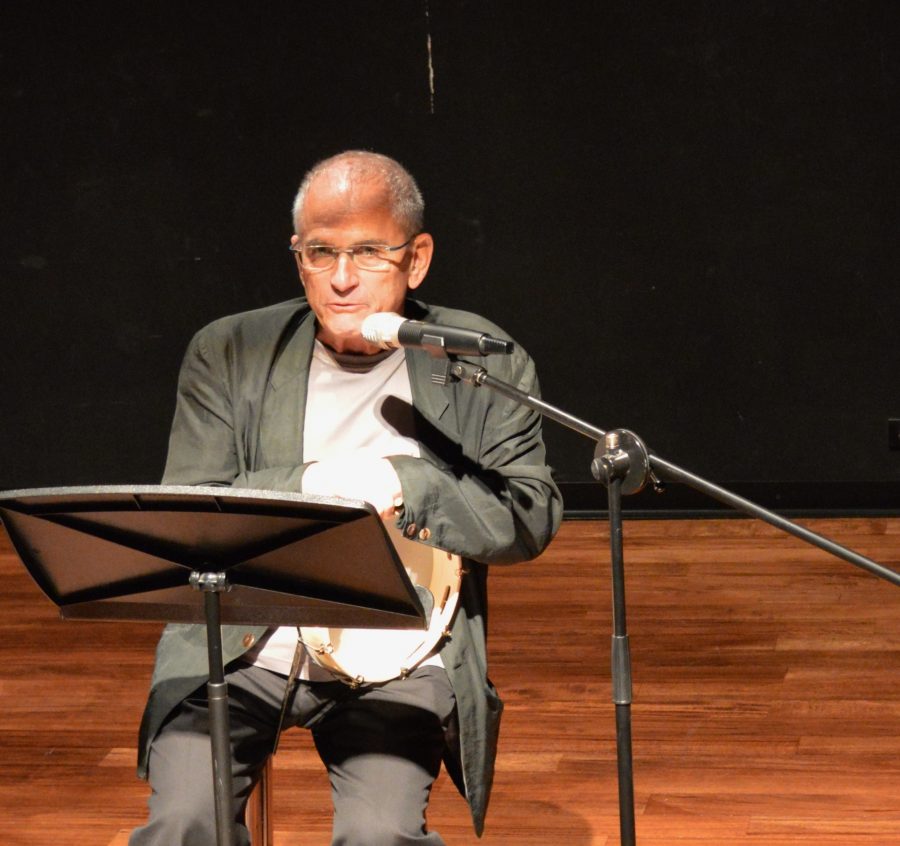Stanley Lombardo, professor of classics at the University of Kansas, sat in a pool of light in the Black Box Theater and faced a small group of students, teachers and administrators as he impersonated the voice of Odysseus.
Later, after he finished signing numerous copies of his book, he answered the question in almost every student’s mind: Why do we even care about Greek myths and why are we still reading them?
According to Dr. Lombardo, “The Odyssey is a classic work of literature that has influenced human culture for 2800 years. If we’re to understand ourselves, then we have to become familiar with works such as The Iliad and The Odyssey, which are the earliest and greatest works of literature we have.”
Dr. Lombardo’s visit to TAS was sponsored by the PTA and he was first invited by Dr. Hansen, the Classics Department Chair. “I thought he would be a good example of someone who does Latin and Greek things, but also someone everyone can connect to. Even if they haven’t taken Latin and Greek, in 9th grade they will have read his translation of the Odyssey. I’m always looking for people that can make Greece and Rome exciting for students and faculty,” says Dr. Hansen.
As numerous people have devoted their lives to Ancient Greek culture and language, it’s safe to say that these myths are more than just simple stories. As Dr. Lombardo explained, the entire history of Western culture has been built upon these foundational myths. Reading them and learning ancient Greek and Latin tell us more about the roots of who we are and where we come from. “Just like how in Eastern culture you have to study Confucius or you won’t understand who you are, Greek and Latin are in an analogous position to Western culture,” he said.
According to Dr. Lombardo, the Greeks were also unique in their genius for storytelling. The clarity of mind and expression keeps the characters compelling to us while moral lessons teach what it truly means to be a human being. We can learn from the qualities of the Greek heroes, as well as their successes and mistakes. “Take Odysseus for instance. He survives because he’s a great warrior but he also has a very deep mind. He’s always thinking his way out of trouble. Also he’s enduring, he’s patient, and he won’t ever quit,” said Dr. Lombardo.
What does the classics expert hope students will take away after reading The Odyssey? That they want to read more!
How to make Homer Hip
November 18, 2014
0




![[PHOTO COURTESY OF PIXABAY]](https://blueandgoldonline.org/wp-content/uploads/2025/03/white-18227_1280-1200x803.jpg)

![[PHOTO COURTESY OF PIXABAY]](https://blueandgoldonline.org/wp-content/uploads/2025/03/fire-6706674_1280-1200x800.jpg)
